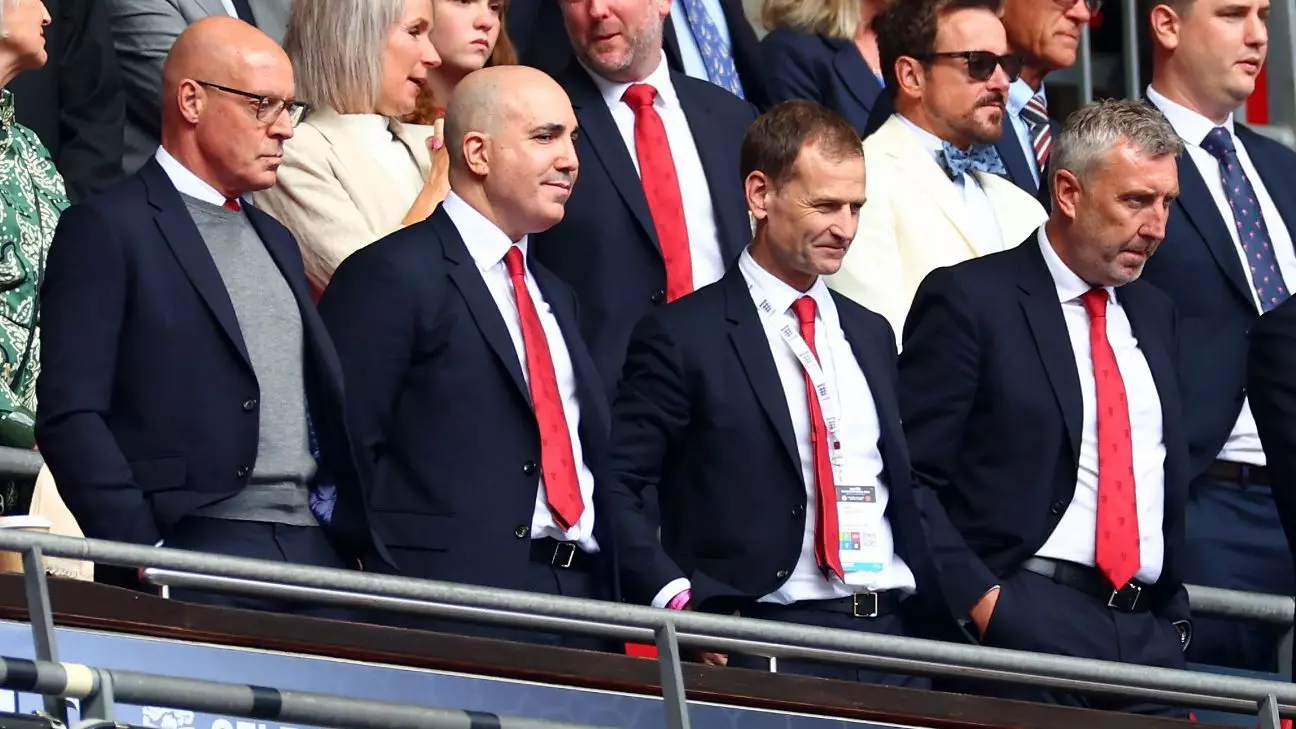Football management is an intricate dance between various stakeholders, and at the center of this choreography often lies the relationship between the head coach and the sporting director. These two figures are pivotal in shaping the clubs they represent, particularly when it comes to assembling a competitive squad. Recent developments at Manchester United underscore the volatile nature of this dynamic, which can drastically affect a club’s fortunes. The dismissal of Dan Ashworth, just months after his appointment, has brought to light the urgency with which United is seeking to return to competitiveness under new manager Ruben Amorim.
The crux of the issue appears to stem from a broader, more pressing concern: the need for Manchester United to reclaim its status among football’s elite. After a series of disappointing seasons, the prospect of another underwhelming campaign was intolerable for Sir Jim Ratcliffe, United’s minority owner. Frustration emanated from a belief that Ashworth lacked the requisite personal influence and professional acumen to navigate the complex challenges of modern football recruitment. The decision to terminate Ashworth’s contract, though unexpected by many, reflects the club’s desperation to avoid prolonged mediocrity.
Ashworth’s recent stint at the helm of United’s summer transfer activities is particularly telling. A total expenditure of £182 million on five new players generated considerable optimism, yet only one signing has remotely justified that financial outlay. Such lackluster returns amplify questions about the club’s strategic direction and further illuminate the fact that Ashworth was unable to make a significant impact in such a short time.
It is essential to understand that while Ashworth was tasked with overseeing player recruitment, the hiring of Amorim was predominantly handled by CEO Omar Berrada—an indication of a fracture in the management structure. This disjointed approach raises philosophical questions about the cohesion between managerial vision and recruitment strategy. The urgency of United’s situation demands a synergistic relationship between the coaching staff and the recruitment team, and the apparent rift complicates that relationship.
Ashworth’s previous roles in football—involving formative experiences with organizations such as the English Football Association and clubs like Brighton and Newcastle—had garnered him a reputation as a competent figure in player recruitment. However, his tenure at United proved fraught with challenges, not least because the team continued to face disappointing performances after Ashworth’s summer recruitment. The disconnect between managerial expectations and player execution became evident, especially with summer signings like Joshua Zirkzee and Manuel Ugarte struggling to secure their footing in a club desperate for attacking prowess and solidity in defense.
The consequences of poor recruitment strategies are twofold. Firstly, from a financial perspective, Manchester United is grappling with significant losses—£113.2 million in their most recent accounts. This financial strain exacerbates the urgency of success on the field, as failure to qualify for lucrative competitions like the Champions League would deepen their fiscal problems. This creates a vicious cycle where financial concerns manifest in pressure on managerial roles and recruitment practices.
Secondly, losing faith in one’s sporting director can erode the foundation of operations within a club. When Ratcliffe criticized United’s recruitment methodology in a fanzine interview, claiming that they were “in the last century” regarding data analytics, it exposed a widespread acknowledgment that the club was trailing competitors in critical areas. Effective football management today is heavily reliant on data-driven decision-making, and failure to adapt can inhibit recruitment success.
United’s struggles highlight the paramount importance of astute recruitment in modern football. The contrasting experience of figures like Michael Edwards, the former Liverpool sporting director, exemplifies this point. Edwards’ reputation for impactful recruitment has set standards that aspiring directors must strive to meet. His tenure demonstrates that a well-calibrated recruitment strategy can reap immediate rewards, a luxury that United has found elusive under Ashworth.
The future of Manchester United may revolve around the establishment of a more integrated recruitment strategy that aligns closely with the managerial vision. The appointment of capable sporting directors like Hugo Viana, set to replace the illustrious Txiki Begiristain at Manchester City, will be critical. Viana’s track record speaks volumes, and embracing similar philosophies could facilitate healing the fractures that marred Ashworth’s time at the club.
The narrative around Manchester United serves as a case study in the intricacies of football management. The blend of poor decision-making, financial imperatives, and the need for structural coherence within the home of the Red Devils has spotlighted critical lessons for future endeavors. Stringent evaluation and swift adaptation are crucial if Manchester United is to reclaim its place among the giants of football.
